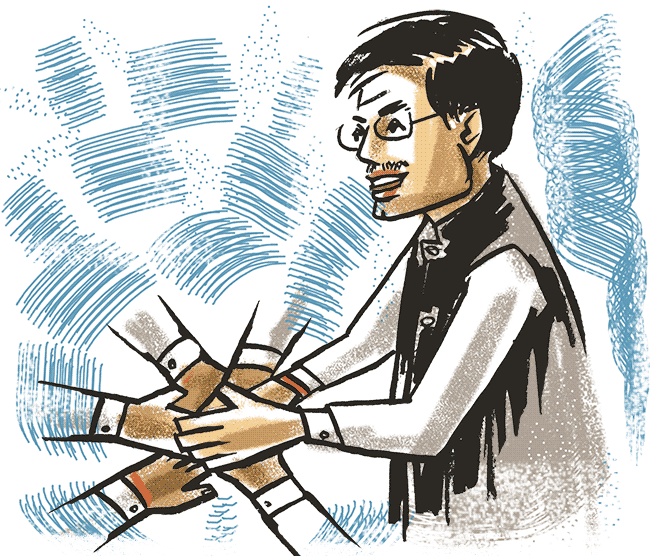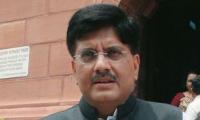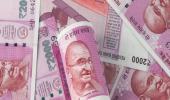E-commerce Moratorium in WTO Needs Clarity: Goyal
x
India's Commerce Minister Piyush Goyal calls for a clear definition of the WTO's e-commerce moratorium, arguing its extension hinders India's digital trade development. He also stresses the need for WTO reform, including defining 'developing' countries.

New Delhi, Apr 11 (PTI) Commerce and Industry Minister Piyush Goyal on Friday said the WTO members need to clearly define a moratorium on imposing customs duties on e-commerce trade, as its extension is impacting countries like India to develop its own ecosystem in the digital trade sector.
The World Trade Organisation (WTO) members have agreed not to impose customs duties on electronic transmissions since 1998 and the moratorium has been periodically extended at successive ministerial conferences (MC), which is the highest decision-making body of the 166-member body.
India has time and again emphasised the need to discuss the scope of the duty moratorium as there are revenue implications because of it.
"We are not, per se, against it. (But) our problem is that we had an ITA-1 (Information Technology Agreement) earlier, which did not properly define (that) what comes within the ITA, and it kept getting expanded to cover more and more items causing loss or the lack of ability for countries like India to develop our own ecosystem.
"So, I think e-commerce moratorium needs to be well defined, what it will cover, and limited that and what it will not cover, but anything beyond that also will not be covered," he said here at an event.
The minister also said that India has always believed in multilateral organisations and it has supported them as they have a "very" important role to play.
India will continue to work within the framework of global rules of business and trade, but "I think the WTO will have to also reform itself on a few items", he said.
Citing examples, he said there is a need to fix a benchmark for defining or categorising a WTO member as a "developing" country.
If a country having a per capita income of USD 50,000 or USD 1,00,000 chooses to self-declare itself as a developing nation, "it is going to cause angst amongst the rest of the world, or the developed world", he said.
Goyal added that actually it causes angst even for developing countries because those people hurt the interests of other developing economies.
"...the developed world then takes a macro view, or the lens of the developed world towards the developing countries gets tainted," he said, adding that "it would be only fair that some kind of a benchmark could be set, or at least those countries who have now reached pretty good levels of prosperity take a more realistic view of their own status".
He also said that certain decisions taken over 10 years ago on agriculture have still not been implemented.
"Unless those get implemented, how can we move forward to other areas? So, in fisheries, we are trying to come to a consensus without really addressing the real problem of overfishing in the waters," the commerce minister said.
The World Trade Organisation (WTO) members have agreed not to impose customs duties on electronic transmissions since 1998 and the moratorium has been periodically extended at successive ministerial conferences (MC), which is the highest decision-making body of the 166-member body.
India has time and again emphasised the need to discuss the scope of the duty moratorium as there are revenue implications because of it.
"We are not, per se, against it. (But) our problem is that we had an ITA-1 (Information Technology Agreement) earlier, which did not properly define (that) what comes within the ITA, and it kept getting expanded to cover more and more items causing loss or the lack of ability for countries like India to develop our own ecosystem.
"So, I think e-commerce moratorium needs to be well defined, what it will cover, and limited that and what it will not cover, but anything beyond that also will not be covered," he said here at an event.
The minister also said that India has always believed in multilateral organisations and it has supported them as they have a "very" important role to play.
India will continue to work within the framework of global rules of business and trade, but "I think the WTO will have to also reform itself on a few items", he said.
Citing examples, he said there is a need to fix a benchmark for defining or categorising a WTO member as a "developing" country.
If a country having a per capita income of USD 50,000 or USD 1,00,000 chooses to self-declare itself as a developing nation, "it is going to cause angst amongst the rest of the world, or the developed world", he said.
Goyal added that actually it causes angst even for developing countries because those people hurt the interests of other developing economies.
"...the developed world then takes a macro view, or the lens of the developed world towards the developing countries gets tainted," he said, adding that "it would be only fair that some kind of a benchmark could be set, or at least those countries who have now reached pretty good levels of prosperity take a more realistic view of their own status".
He also said that certain decisions taken over 10 years ago on agriculture have still not been implemented.
"Unless those get implemented, how can we move forward to other areas? So, in fisheries, we are trying to come to a consensus without really addressing the real problem of overfishing in the waters," the commerce minister said.
You May Like To Read
TODAY'S MOST TRADED COMPANIES
- Company Name
- Price
- Volume
- Welcure-Drugs-and
- 0.46 ( -4.17)
- 14811536
- Vodafone-Idea
- 11.26 ( -0.88)
- 14748672
- Sylph-Technologies
- 1.00 (+ 3.09)
- 9743197
- Meesho-L
- 190.40 (+ 11.51)
- 6132017
- Sunshine-Capital
- 0.27 (+ 3.85)
- 4790793





